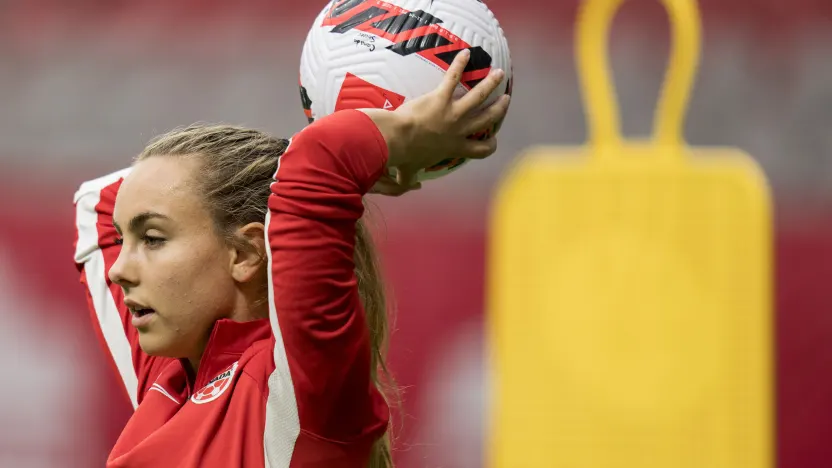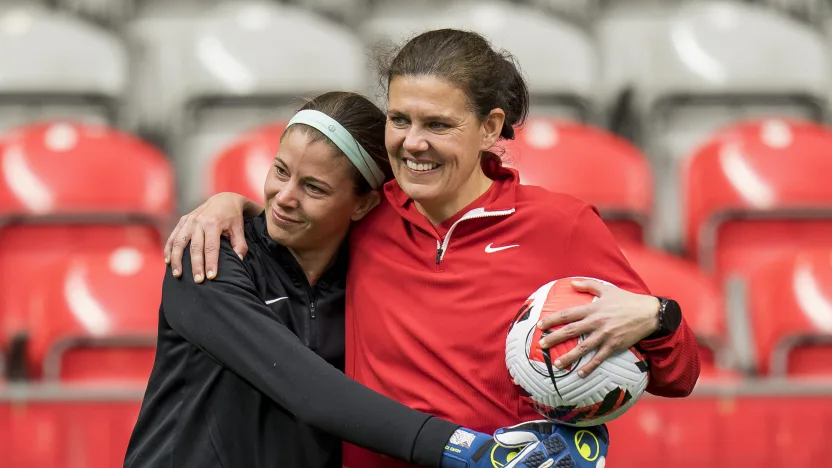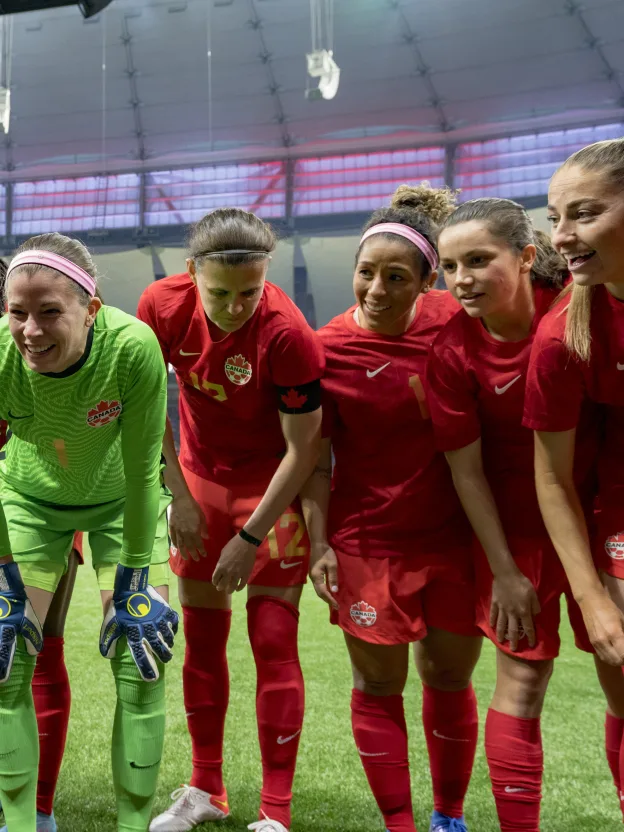There was a moment during Friday’s Canada versus Nigeria game at BC Place when the camera on the broadcast was aimed at the Canadian bench, with three players front and centre. On one side, Christine Sinclair, finally recognized in her home province for becoming the greatest international goalscorer of all time in early 2020. On the other end was goalkeeper Stephanie Labbé — not long after walking off the pitch for the final time in her career, to a standing ovation. Sitting in between them was 20-year-old defender Zoe Burns. Several years after watching the world’s best compete at the same venue in the 2015 FIFA Women’s World Cup, Burns was now part of the team — amongst the players from the greatest Canadian women’s national team ever assembled. She was a standout for Canada at the recent Concacaf Women’s U-20 Championship in the Dominican Republic — named to the Best XI and scorer of the winning goal in the bronze medal match, securing Canada’s best finish at the event since Sarah Stratigakis, Bianca St. Georges and co. finished second in 2015. On Monday, at Langford’s Starlight Stadium in the final match of the celebration tour, Burns made her senior national team debut, playing about 35 minutes off the bench after replacing Allysha Chapman at left back. When Gabrielle Carle came off the bench later in the half, Burns switched over to right back, and still hardly put a foot wrong. The USC Trojans defender looked composed under pressure, definitely not like she was taking on a strong opponent and surrounded by Olympic champions in her first match at that level.

Her inclusion was the latest sign that head coach Bev Priestman is committed to integrating youth into the team and continuing to build for the future. She has spoken a lot over the past several months about wanting to celebrate the team’s Olympic gold medal in Tokyo, but also keep one eye on the future. This summer’s schedule for the national team will include the CONCACAF W Championship — a tournament where success is absolutely crucial. The tournament serves as qualification for the 2023 Women’s World Cup, the Paris 2024 Olympic tournament, and the inaugural CONCACAF W Gold Cup in 2024 as well. Simply put, there’s pressure on Canada to succeed, and there will be a target on their back. Canada can’t, and obviously shouldn’t, just forget about the gold medal from Tokyo 2020, but Priestman has stressed that it’s in the rear view mirror. They need to take the momentum from the gold medal, and strong showings in friendlies and at the Arnold Clark Cup, and use it to their advantage. With Labbé now officially retired, replaced just after halftime by Kailen Sheridan in a changing-of-the-guard moment at BC Place, it was one of many reminders that a new era for the women’s national team is approaching. The country’s golden generation had done exactly that — win a major international tournament — but with that comes the reality that it can’t last forever. Only time will tell how many of the remaining 21 players from Tokyo 2020 will make it to Paris 2024, or even next summer’s Women’s World Cup if they qualify, but one thing we do know is that with the end of an World Cup quadrennial comes the end of one journey and the beginning of a new one. After the home 2015 World Cup it was the likes of Jessie Fleming, Ashley Lawrence and Kadeisha Buchanan confirming their places in the national team. After 2019 it was was the continued emergence of Jordyn Huitema, Jayde Riviere, Julia Grosso and Gabrielle Carle into national team regulars. Over the next year and beyond it’ll be players like Zoe Burns, Jade Rose and Nikayla Small — standouts at the youth level who are starting to work their way into the senior squad now. Just like their heroes before them, they’ll be eager to continue to push the program in a new direction. With historic gold medals in the recent past, and a roster hungry to build on it in the near future, the women’s national team is in a good place to do what Priestman has wanted: keep moving forward. To borrow a phrase that several members of the team have used — there’s a new mountain to climb, and the ascent begins now.

